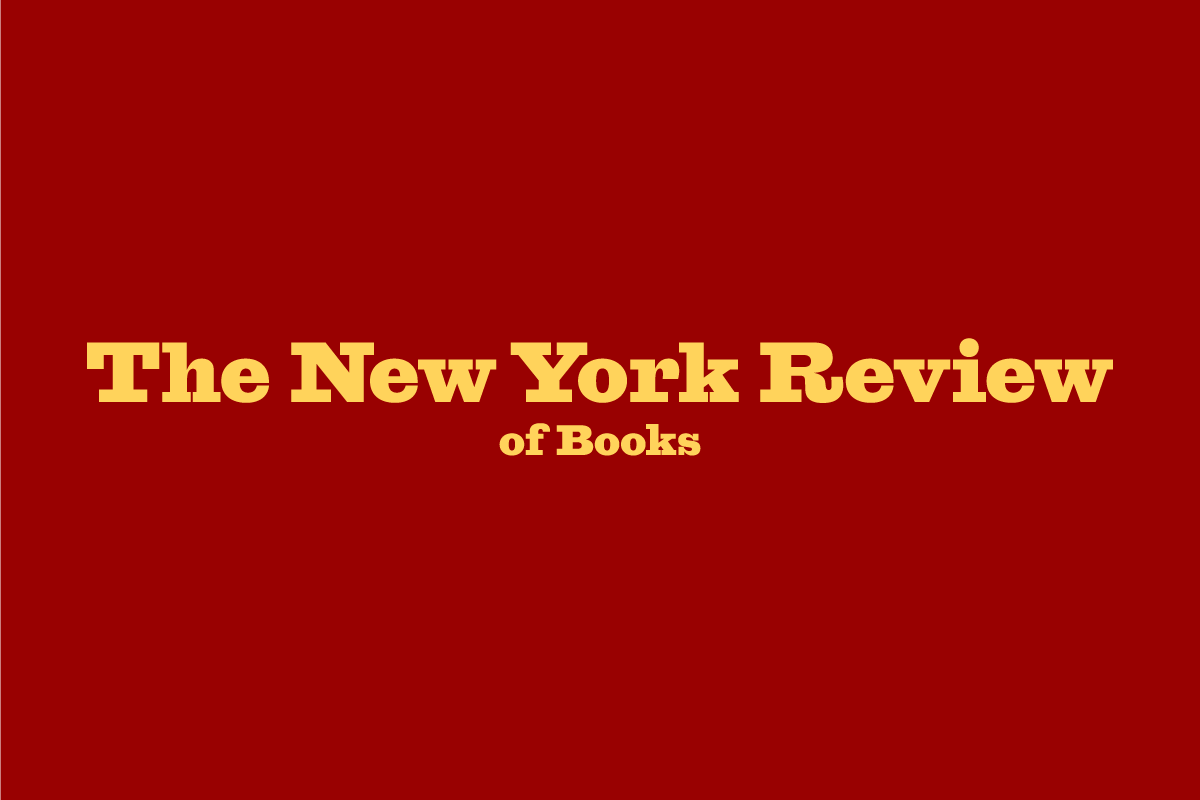The earliest trace of the concept of freedom appears on a Sumerian stone tablet unearthed in Iraq and now displayed in the Louvre. Dating to about 2400 BCE, it commemorates how a king, Enmetena, liberated the people of his city-state, Lagash. In ancient Mesopotamia slavery, particularly of prisoners of war or families in debt, was a common practice. The word for freedom, ama-ar-gi, was at once a legal term and a metaphor. Formed from ama, “mother,” and gi, “return, restore, put back,” it had the literal meaning of “returning to the mother.” Freedom was the return of an enslaved child to their parent and also “the restoration of persons and property to their original status,” according to The Oxford Handbook of Cuneiform Culture, including the release from incarceration, debt, or punishment. As a “reversion to a previous state,” in the definition of a Sumerian dictionary, freedom looked to the past rather than the future, drawing time into a circle.
In her poem “Ama-ar-gi,” from the collection In Her Feminine Sign (2019), the Iraqi American poet Dunya Mikhail reproduces the Sumerian word on the page. The cuneiform resembles arrows pointing the way home. In 2009 Mikhail’s twenty-year-old niece was kidnapped in Baghdad by masked men while she was walking down the street with her mother. She was pulled into a car, “leaving her mother’s hand stretched after her,” Mikhail recounted in an interview, and never seen again. Freedom, Mikhail writes in the poem, might be “what seeps out/from the dead into our dreams.”
Ama-ar-gi—
that’s how we return to the mother,
strangers from strangers….
and before we shed our first tears
Ama-ar-gi is what we weep.
Over the past four decades, Mikhail has written of Iraq, its histories of invasion and loss, and the experience of exile in a voice so disarmingly direct it seems to become oracular. Her poetry first appeared in Arabic in the mid-1980s; in 2005, when New Directions brought out her collection The War Works Hard, translated by Elizabeth Winslow and short-listed for the Griffin Poetry Prize, she became the first female Iraqi poet to have a book published in the United States. Since then Mikhail has published six other books, often self-translated or written bilingually in Arabic and English, including the memoir in verse Diary of a Wave Outside the Sea (2009); a novel, The Bird Tattoo (2022); and three more poetry collections, most recently Tablets: Secrets of the Clay. Her first book of prose, The Beekeeper (2017), is a harrowing oral history of the Yazidi genocide in Iraq and Syria, told through phone calls with women who escaped from ISIS captivity.
In Mikhail’s work the journalistic, the mythic, and the poetic meet. She is preoccupied with our urgent present, but she studies it with the care of an archaeologist exhuming relics of the deep past, to be deciphered and preserved; like the arrows, they might show us the way toward political rebirth. She searches the wreckage for archetypes and symbols that testify to our shared humanity, finding the idiosyncrasies—the jokes and absurdities, the surreal questions children ask—that can demolish the logic of tyranny. Freedom, for Mikhail, is what binds people together in kinship and solidarity across the ruptures of unending war. “I believe that poetry is useless but effective,” she has said. She is writing toward a miracle: for places besieged by ongoing violence, “every moment/something ordinary/will happen/under the sun.”
A spiral coiled deep in the ear, a telephone line to the sea: the shell is Mikhail’s recurring symbol for poetry. It can also be an artillery shell—children gather fragments from the sand—or the Shell oil corporation, which originated as a family business selling “oriental seashells” to the West. In Basra in the eighth century CE, the grammarian al-Farahidi established the laws of classical Arabic meter, defining poetry in the language. The word for “meter,” bahr, is the same as the word for “sea,” and al-Farahidi and a disciple enshrined sixteen different types. These conventions remained largely in place until the late 1940s, when poets in Iraq such as Badr Shakir al-Sayyab and Nazik al-Malaika started experimenting with free verse as a way to speak to modern political realities, provoking fierce condemnation from traditionalists. Mikhail sees herself in this antinomian lineage: “A wave breaking outside the sea./In this way I go on.”
Mikhail was born in Baghdad in 1965 to a Chaldean Catholic family. War, she would recall, “was so familiar…it had a room in our home.” Each time it returned “the war came with a different name (the Iraq-Iran War, Desert Storm, Mother of All Battles).” In war’s bedroom, the windows were sealed with tape, the keyhole was covered, and the shelves were stocked with water, canned food, and batteries for the radio. On summer nights her family would sleep on the roof under the stars, when it was safe to do so, and her grandmother, who spoke to her in Aramaic, would recount fables that had been passed down through generations. Mikhail preserved the myths in her notebook. In high school she buried herself in her bedroom composing verse. Her mother explained to visitors that her daughter was busy writing her “feelings,” a play on the closeness in Arabic between shi’r (“poetry”) and shu’ur (“emotions”).
After studying English literature at the University of Baghdad, in the late 1980s she took a job at The Baghdad Observer, the daily English newspaper of the Ba’athist regime. As a state employee, Mikhail was obliged to attend government-sponsored poetry readings organized by the Ministry of Culture. (“The exits were guarded by policemen, who forced us/to stay the entire time.”) With the onset of the Gulf War, Mikhail started to attract suspicion for the tone of her reportage and the quiet dissidence of her verse, especially when the first half of Diary of a Wave Outside the Sea was published in Arabic in 1995. She was interrogated at her office, and she and other journalists were called to a meeting at Baghdad’s Celebrations Hall, where they had previously watched Shakespeare plays. Two journalists were brought onstage, as if for a panel discussion. Suddenly they were beaten up in front of the audience, then taken behind the curtain to an unknown fate.
One passage in particular from Diary of a Wave Outside the Sea provoked attention:
In his spare time Zeus kept himself busy
cutting the stars from the sky
and sticking them onto chests and shoulders.
He busied himself with this hobby so much
that eventually the sky lost all of its stars.
Once forming a constellation of literary and cultural life, now the stars appear on officers’ epaulets as emblems of Iraq’s transformation into a police state under Saddam Hussein. Air strikes resemble meteors at night. A phrase often repeated by American war hawks and peaceniks was that Iraq might be “bombed back to the Stone Age”—as if violence caused time travel. “When I moved the time machine’s lever to the year 1991,/it began to shake severely and seemed as if on fire,” Mikhail writes, recalling the terror of living through Operation Desert Storm. She buys a bouquet for her own funeral: “Death and I—/we both like flowers.”
If Mikhail had tried to leave Iraq as a journalist, she would have needed exit papers from her state employer. Instead she managed to persuade an immigration officer to change the occupation listed on her passport to “poet” and slipped out unnoticed, arriving first in Amman. Her friend the novelist Lutfiya al-Dulaimi sent her letters in code: “The flowers are withering” meant it was still not safe for Mikhail to return. In Jordan a contact at the American embassy granted Mikhail a rare tourist visa, and in the spring of 1996 she flew to Detroit. She applied for asylum and settled in Michigan, taking a job teaching Arabic at a public school. Mikhail writes that she left the hundreds of books from her library in Baghdad in storage with a cousin. Living under the UN sanctions, which led to the deaths of an estimated two million Iraqis from famine, her cousin ripped out pages to wrap the falafel sandwiches he distributed from his shop.
“Reading is the most luxurious activity at the front,” a fellow writer, Mazin Hana, had once told her. Like all men of age in Iraq, Hana was required to do military service. In the second part of Diary of a Wave Outside the Sea, written from exile, Mikhail describes him reciting al-Sayyab poems to her as they were falling in love. When Hana witnessed a close friend being killed, he decided to flee the army by getting smuggled out of Iraq via Turkey. He asked Mikhail to accompany him, and she demurred, yet soon she regretted it. She lost contact with him, and for ten years she didn’t know whether he was alive or dead.
In the poem “The War Works Hard,” written in Arabic in 1994 and appearing in the collection of the same name, war has become a person—a busy, type A professional who rises early and goes about their day, dispatching ambulances, slinging stretchers, and entertaining the gods with fireworks: “How magnificent the war is!/How eager/and efficient!” In the brisk, cheery tone of an op-ed that has been run past the censors, the poem lists war’s productive achievements: sowing land mines and reaping wounds, filling papers with a harvest of content.
The war continues working, day and night.
It inspires tyrants
to deliver long speeches,
awards medals to generals
and themes to poets.
It contributes to the industry
of artificial limbs,
provides food for flies,
adds pages to the history books,
achieves equality
between killer and killed
Mikhail’s poetry often plays with the conjuring powers of political rhetoric; “equality” here emerges as a lethal figment. As she writes in Diary of a Wave Outside the Sea, “This world believes in democracy,/therefore it grants the dead/the freedom to wander the city.”
In “America,” written in response to the US invasion in 2003, the stars that went missing over Iraq—plucked by Zeus/Hussein as ornaments for his generals—become the questionnaires left blank by refugees. Mikhail calls upon her adopted home to let in immigrants and cease subjecting them to interrogation. She captures an impasse: to escape violence and qualify for shelter, the refugee needs to turn what happened to her into a plausible narrative even as trauma creates holes in memory. How many died, how long they walked, what flag, which airport, how many suitcases—the poet cannot remember. The poem begins to form its own cross-examination, of the bureaucratic rituals that mask the daily work of turning away those in desperate need: “Who said that the sky/would lose all of its stars/if night passed without answers?”
As the poem unfolds, the addressee shifts: Mikhail is speaking to America—“People are grass—/they grow everywhere, America”—but at the same time to an unnamed lover, in a romance with a promised future. Forgotten details come flooding back (“every kiss a country/with a history/a geography/and a language”). Yet when the poet passes across the secured border, her arrival in America is good for nothing because she is alone:
So I will toy with the freedom
like teasing a pet cat.
I wouldn’t know what else
to do with it.
One night in Michigan in 2015, Mikhail met the Sumerian priestess Enheduana in a dream. The earliest writer whose name we know, Enheduana wrote hymns of war around 2300 BCE in what is now southern Iraq. In The Beekeeper, Mikhail recalls how she caught sight of the priestess, who was ritually married to the moon, floating on the edge of the Milky Way. They chatted briefly about poetry and Iraq—but then the scene swerved, and Mikhail found herself speaking instead with Siri: “She emerged suddenly from my phone, like a djinn who would grant me all of my wishes.” Siri told her how she longed for the simple routines of daily life, such as the ability to comb her hair, and Mikhail took down her story. “She dreamed of getting out of that prison—going to the gym or having a nice meal,” Mikhail writes. “She dreamed of having her questions answered as well.”
Mikhail had begun to grow delirious: still working by day as an Arabic teacher, she would set her alarm for 3:55 AM to speak across time zones with women who had escaped the genocide unfolding in Iraq and Syria. Beginning in 2014, as the Islamic State rapidly gained territory, the Yazidis, followers of an ancient monotheistic faith, were brutally persecuted, kidnapped into sexual slavery, forced to manufacture explosives, and killed in mass graves. Mikhail’s Chaldean community and other Iraqi Christians were also targeted: she learned that her family’s ancestral village of Telkaif had fallen under the black flags of Daesh and that her grandmother’s tomb, with its Aramaic inscription, had been destroyed. From exile, Mikhail resolved to do what she could to bring to light the stories of Yazidi survivors, and she used her journalistic contacts to locate sources. Often the voice on the other end was weeping so hard it was impossible to understand.
A nineteen-year-old named Badia was among the Yazidi villagers of Kocho who hadn’t yet fled when Daesh arrived in early August 2014. “We heard that they were coming toward us,” she tells Mikhail. “We didn’t believe it. We traded these stories as if they were straight out of The Thousand and One Nights.” Twelve hundred villagers were herded onto trucks at gunpoint and taken to a school; their mobile phones and valuables were confiscated, and the men were separated from the women and children. The men were lined up in a ditch and executed, as some of their families watched helplessly from the windows. The young boys were escorted to a military training camp for reeducation, while the elderly women, including Badia’s mother, were killed or buried alive in a fishpond. The younger women and children were shuttled between slave markets; eventually Badia was sold in Raqqa to a convert known only as “the American Emir.”
Badia’s story was just one of thousands of accounts of abduction, trafficking, and rape used as weapons of war. When Mikhail telephoned a young Yazidi mother named Nadia, the woman spoke only Kurdish and passed the phone to her cousin who could translate—a beekeeper, Abdullah Shrem. Based in Sinjar, Abdullah used to trade his honey between Iraq and Syria. After his sister, nieces, and cousins were taken captive by ISIS and sold into slavery in Raqqa, he became determined to rescue them. Among the kidnapped was his nephew’s wife, Nidal, a mother of two young children, who became pregnant from rape and was routinely beaten by her Daeshi captor. On the day she gave birth, her captor took the newborn away and forbade her from breastfeeding, maintaining that the infant could drink only “from the milk of the Islamic State.” Nidal and her children were then sold for $250 to another family, who threw her two-year-old son off a balcony when he wouldn’t stop crying.
Before long, Abdullah’s life’s work had shifted from tending bees to emancipating women, at grave personal risk. He began to collaborate with the well-forged networks that dealt cigarettes, banned under the Islamic State, and with a newly established Office of Kidnapped Affairs in the Kurdistan Region. “I cultivated a hive of transporters and smugglers from both sexes to save our queens, the ones Daeshis call sabaya, sex slaves,” Abdullah tells Mikhail. “We worked like in a beehive, with extreme care and well-planned initiatives.” Soon hundreds of distraught families were sharing his phone number: “Can you hear that ringing? Someone’s calling right now.”
Over the course of a year Mikhail and Abdullah spoke nearly every day, as Mikhail followed the progress of his rescue missions. He became her Scheherazade, telling an ongoing story—a fable to skirt death—over the nights and time zones, constantly interrupted by his phone. Abdullah would give Mikhail the numbers of the women he had liberated, such as Badia and Nidal, and she would call them, hearing their terrifying accounts firsthand. In The Beekeeper, cotranslated with Max Weiss, Mikhail has invented a new form of writing about war. It preserves the urgent immediacy of phone calls, texts, and bad cell reception, and foregrounds the voices of survivors on the other end of the line. Yet Mikhail imbues these stories with a mythic depth, each one like a riddle of the problem of evil. Testimony, reportage, and photographs are occasionally punctuated by Mikhail’s own poetry, at moments of sorrow so deep only a different mode of language can stand.
In 2016 Mikhail returned to Iraq for the first time in twenty years, to meet the beekeeper and the women she had spoken with, many of whom were now in refugee camps. With Abdullah she visited the temple at Lalish, the epicenter of the Yazidi faith, on a site said to date to the Sumerian period. In The Beekeeper, Mikhail describes crossing the thresholds of the shrine, deep in the Sinjar Mountains: “You pass from one cave into another, as if history is sleeping and you are inside its eyelid.” Yazidis were making a pilgrimage to Lalish for a new sacrament of the “second baptism,” invented by religious leaders the previous year. It is a rite of freedom as a form of rebirth, a return to oneself.
A tablet can be a slab of stone, wood, or clay, or a pill to kill pain. It is also a headstone marking a burial site, or a digital genie’s cage. “At this moment, I am writing to you using a tablet such as a computer, or iPad, or cellphone,” Mikhail writes in the author’s note to Tablets: Secrets of the Clay. The tablet is the device through which we most often receive bad news and are informed of disaster; it keeps us awake until dawn. It is also the surface on which we find the earliest poetry, politics, and myths, on slates made from the same substance as the first humans, wet clay. Tablets have preserved writings for millennia, such as those of Enheduana, but someone still needs to stumble upon them amid the rubble. Siri’s tablet, as a portal to the cloud, appears to offer a more durable immortality, yet archivists warn us that the cloud is even more fragile than the physical records it promises to replace.
Mikhail has long been building a dictionary of symbols—the shell, the flower, the stars—that recur across her books. In Tablets she takes the logical next step and creates her own cuneiform. The book gathers 240 pictograms that resemble ancient Sumerian glyphs; the Arabic text is intertwined in each image, and the English translation is beside it. Many of them, Mikhail has said, were “born bilingually,” written in both languages and directions at once: the Arabic and the English “grow together without imposing too much on each other, a behavior similar to true lovers.” The poems are aphoristic, with the brevity of text messages. To decipher many of them requires some knowledge of Mikhail’s oeuvre, although the collection can also serve as a gateway for the uninitiated.
The tablet becomes a device for time travel, taking us back to the early development of written language. Mikhail looks to the period in Sumerian history around 3200 BCE when a pictorial cuneiform began to evolve into a syllabic writing system. As the first scribes expressed themselves through images, their works took on an innate and perhaps inadvertent poetry. Mikhail’s lack of drawing skills is an asset, she suggests: “These drawings are supposed to be ‘primitive.’” Many of her tablets are rectangular, but some are round like the school slates of ancient Sumer, which were disk-shaped so as not to confuse student exercises with official documents. Mikhail’s circular Tablet VI.11 forms such a lesson for beginners: “Life is beautiful and painful/like a feather pulled/from a wing.”
While she looks back to the Sumerian age, Mikhail refuses to privilege any one period of Iraqi history or identity. She interlinks Arabic with cuneiform and weaves together references to the Qur’an, to Catholicism, and to Arabic modernism, from the pomegranates of paradise in the surat al-Rahman to dissolving communion wafers to elegiac gems from al-Sayyab’s most famous poem, “The Rain Song.” “O Gulf, giver of pearls, shells, and death,” al-Sayyab laments. The image that opens Tablets is a nautilus of poetry—in a sketch of a seashell, the Arabic spirals from the inside to the outside:
She pressed her ear against the shell:
she wanted to hear everything
he never told her.
The second tablet alludes to the shell of war, as if exploded beneath the first, on the same page:
A single inch
separates their two bodies
facing one another
in the picture:
a framed smile
buried beneath the rubble.
The image depicts two tablets—two tombstones—with human faces. They are embracing, as if for eternity. In another circular tablet, the spiral of poetry turns into a hopeless chase for a lost loved one. Its pictogram resembles the eye that wards off evil, yet the Arabic text is embedded in it like bloodshot veins:
My Sumerian ancestors
invented the wheel,
and poetry followed—
words searching for other words
like kidnapped family.
As if organized in a museum filing cabinet, the poems of Tablets are loosely grouped by theme. They take us as far into the present as the Covid-19 pandemic. Several refer to the central love story of Mikhail’s life. Years after Mazin Hana left Iraq and lost touch with Mikhail, while he was living in asylum in Australia, he caught sight of one of her poems in an Arabic newspaper and wrote to the editor for her contact information. He mailed a letter that went to an old address, and it passed between hands until it finally reached Mikhail. Hana flew to Detroit, yet American immigration restrictions meant that they had to wait several years before he could join her permanently. In Tablets, pictograms evoke the search for traces of each other, Mikhail’s excitement opening his letter, and the belatedness with which—ten years after their separation—their relationship unfolds. Mikhail beautifully describes love growing old: “No, I am not bored of you./The moon, too, appears every day.”
There are the vanished who return and those who never do. In a grid resembling tablets from Uruk—among the earliest known examples of writing, used for the accounting of commodities and receipts—Mikhail unites ancient form and modern despair: the confiscated cell phones of the executed, ringing together in a box. Years later, Yazidis are still being freed from captivity and only just returning to their families.
The histories Mikhail has witnessed are so often passed off as “unspeakable.” Yet even if we are at a loss for words, there are images, flickering across our tablets. Mikhail’s creation of her own cuneiform—compounding image and text—is not a nostalgic gesture but a new attempt at finding language to express catastrophe. On one page she sketches a small house with a hairline crack running across it. It has two overlapping roofs—a triangle and a dome—making it at once a home and a tombstone.
I wanted to write an epic about suffering,
but when I found a tendril
of her hair among the ruins
of her mud house,
I found my epic there.


















 English (US) ·
English (US) ·